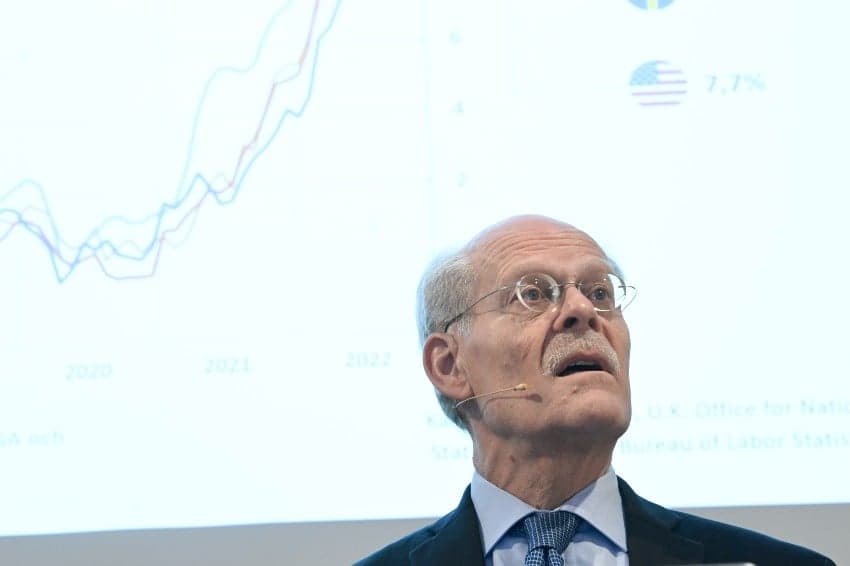Sweden's central bank hikes core rate to highest level in 14 years

Sweden's Riksbank central bank announced a further 75 point increase in the core interest rate on Thursday, in what it likely to be the last interest rate decision by outgoing governor Stefan Ingves.
While the 75 point hike was expected by the market, the bank signalled that it now expected rates to peak at 2.8 percent next year, up from 2.5 percent in it previous forecast.
"Inflation is too high and it's creating problems for many, many households and many, many others," Ingves said at a press conference after the announcement.
"Our judgement right now is that the core rate is going to need to be hiked again at the beginning of next year and will end up somewhere around 3 percent. This unusually high inflation that we've had demands unusually big increases in the core rate."
Thursday's rate announcement follows the 100-point rise in interest rates announced at the end of September, the biggest single increase the central bank had made in 30 years.
It means the country's core interest rate will have risen from zero to 2.5 percent in less than a year.
"I think that's too much. The Swedish economy is starting to buckle," said Annika Winsth, chief economist for the Nordea bank. "It's a little bit more aggressive than we expected. It's not certain it will happen, and if it does, it won't be good for the Swedish economy."
"The prognosis indicates that the core interest rate is probably going to be further increased at the start of next year to just under 3 percent," the bank wrote in a press release. "The Riksbank is going to adapt monetary policy to whatever is required to make sure that inflation returns to the target level within a reasonable period."
Comments
See Also
While the 75 point hike was expected by the market, the bank signalled that it now expected rates to peak at 2.8 percent next year, up from 2.5 percent in it previous forecast.
"Inflation is too high and it's creating problems for many, many households and many, many others," Ingves said at a press conference after the announcement.
"Our judgement right now is that the core rate is going to need to be hiked again at the beginning of next year and will end up somewhere around 3 percent. This unusually high inflation that we've had demands unusually big increases in the core rate."
Thursday's rate announcement follows the 100-point rise in interest rates announced at the end of September, the biggest single increase the central bank had made in 30 years.
It means the country's core interest rate will have risen from zero to 2.5 percent in less than a year.
"I think that's too much. The Swedish economy is starting to buckle," said Annika Winsth, chief economist for the Nordea bank. "It's a little bit more aggressive than we expected. It's not certain it will happen, and if it does, it won't be good for the Swedish economy."
"The prognosis indicates that the core interest rate is probably going to be further increased at the start of next year to just under 3 percent," the bank wrote in a press release. "The Riksbank is going to adapt monetary policy to whatever is required to make sure that inflation returns to the target level within a reasonable period."
Join the conversation in our comments section below. Share your own views and experience and if you have a question or suggestion for our journalists then email us at [email protected].
Please keep comments civil, constructive and on topic – and make sure to read our terms of use before getting involved.
Please log in here to leave a comment.